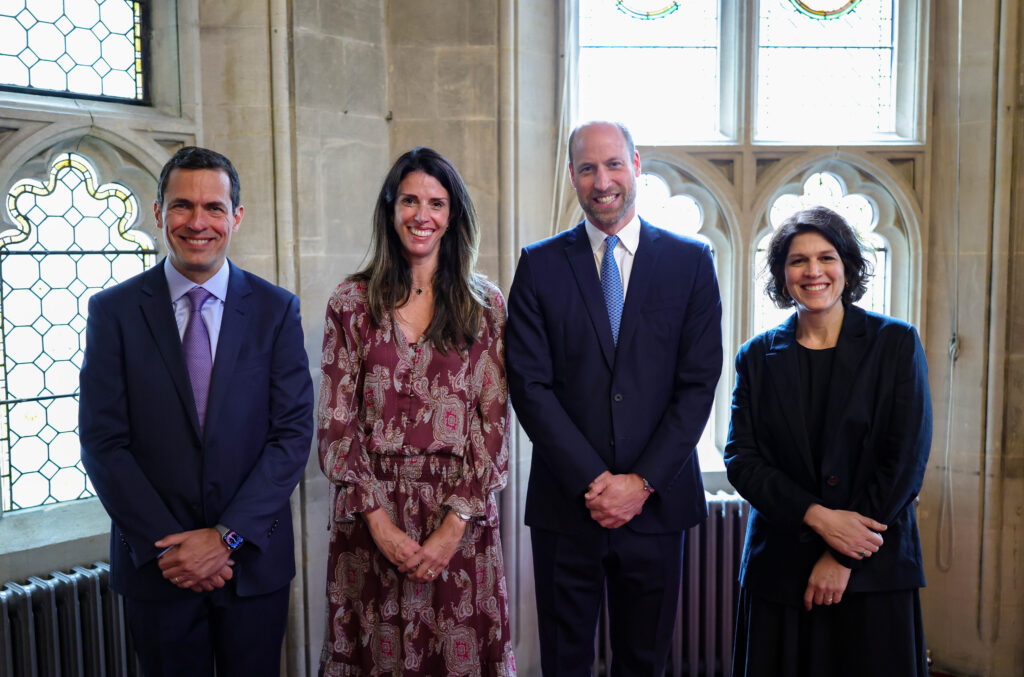
With an audience that includes governments, businesses, civil society organizations, universities, and citizens, London Climate Action Week (LCAW) is now Europe’s largest independent climate week. In its seventh edition, the event, which took place between June 21 and 29, had over 45,000 participants and about 700 events spread throughout the city.
Created by the international climate think tank E3G, in partnership with the City of London, LCAW operates within a collaborative model and has identified four strategic themes for this year: building climate ambition towards COP30 (to strengthen cooperation, policy, diplomacy, and finance in pursuit of alignment around the 1.5°C limit); financing an inclusive and resilient climate transition; strengthening actions for a net-zero London and UK, and engaging all of society in climate change response actions.
The goal of LCAW is to become a platform for innovation, mobilization, and climate impact throughout the year, stimulating partnerships and continuous collaborations far beyond the official week.
Among the highlights of this edition is the release of the “Business Breakthrough Barometer,” which revealed that 91% of companies maintained or increased their investments in climate transition in the past year, and that 92% of them believe that the cost of inaction is higher than that of action. According to the study, companies are treating the transition as a central issue of competitiveness, not just a compliance obligation.
The survey also showed how clear public policies are crucial for this agenda: investments are being directed mainly to countries and sectors that offer stable and reliable policies to stimulate low-carbon solutions.
For Brazil, the week was more than just visibility: it was a practical and symbolic preparation for the expected leadership in Belém at COP 30. By connecting solutions for climate and nature, technological innovation, traditional knowledge, diplomacy, and green finance, the Brazilian delegation showed that it is not only ready to host the event but also to be a significant leader in global climate governance.
Arapyaú’s Debut
For the first time, the Arapyaú Institute participated in the event, with a robust agenda and strategic themes, alongside organizations such as Instituto Alana, The Earthshot Prize, Uma Concertação pela Amazônia, Brazil Creating Fashion for Tomorrow (BCFT), and Instituto Itaúsa. In one of the panels, the institute showed how engaging narratives transform perceptions, mobilize different audiences, and are essential to position Brazil as a catalyst for change towards COP30.
By supporting BCFT, which brought not only designers and creators committed to socio-environmental values to London but also discussions on food, forests, and culture, Arapyaú spoke about climate and put the Amazon in the debate for prosperity, development, and beauty. “It was remarkable to see how good stories have the power to move consciences and connect climate issues with people’s daily lives. The climate agenda is what we wear, eat, and celebrate as culture,” says Renata Piazzon, executive director of Arapyaú. “Another powerful theme of this edition was the need to show that there is no dichotomy between preserving the planet and generating economic value. Nature needs to be competitive – and creating mechanisms such as carbon and biodiversity credits, payments for environmental services, and ecosystem valuation is essential for this,” Renata reinforces.
In the panel “From land to the Table,” Arapyaú presented examples of how regenerative food systems can be great allies for the climate. Producing with standing forests, valuing food culture and local identity is part of the sustainable future we want to build. In “Tropical Forest Restoration,” viable paths were pointed out to scale up forest restoration based on science, public policies, and bioeconomy.
Arapyaú also took advantage of LCAW to launch internationally the report Brazil’s Climate and Nature Solutions, in partnership with Instituto Itaúsa. The report, which highlights high-impact Brazilian solutions with scalability, was well received by government leaders, businesses, civil society, and the COP30 team. “The publication gave a lot of concreteness to those who want to know more about Brazil in terms of climate and nature solutions. This indicates that this material will mobilize other actions, financing, and investments,” says Lívia Pagotto, institutional director of Arapyaú.
Finally, the institute discussed at an event at the London Stock Exchange how to mobilize capital on a scale to turn promises and ambitions into concrete climate action. The convergence between climate and financial leadership at the meeting reinforced the strategic role of financing in implementing sustainable solutions. “LCAW was an important moment to address climate issues amid a complex geopolitical context, which raises expectations for COP30. We showed in London that Brazil is positioning itself as a country with proposals, articulation, and delivery of solutions,” summarizes Lívia.